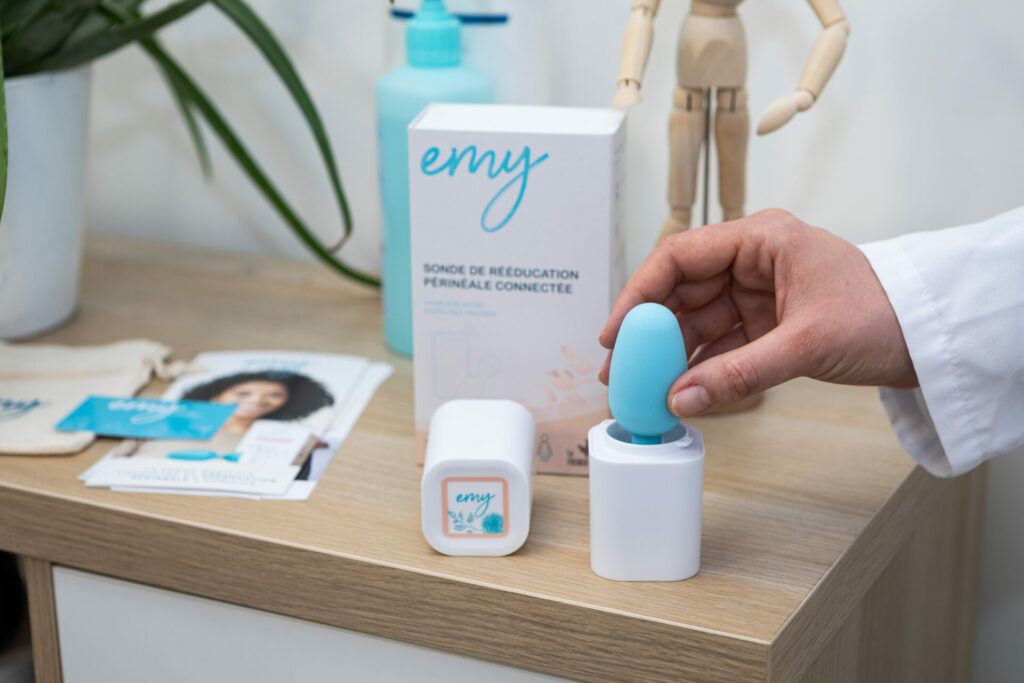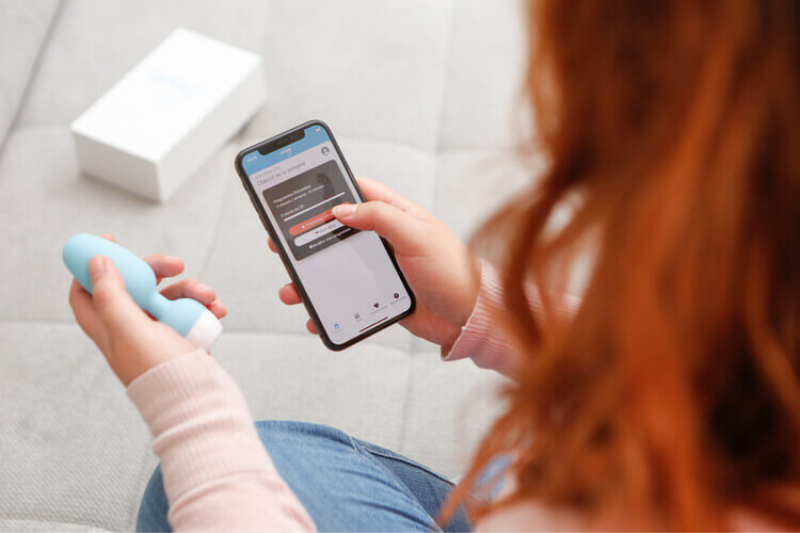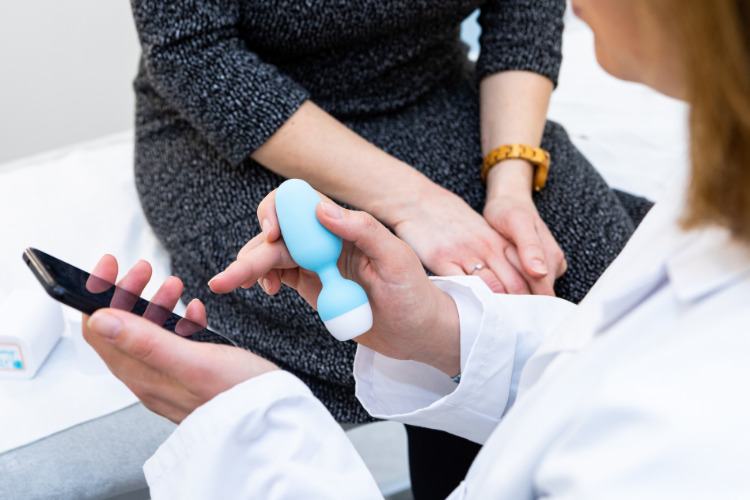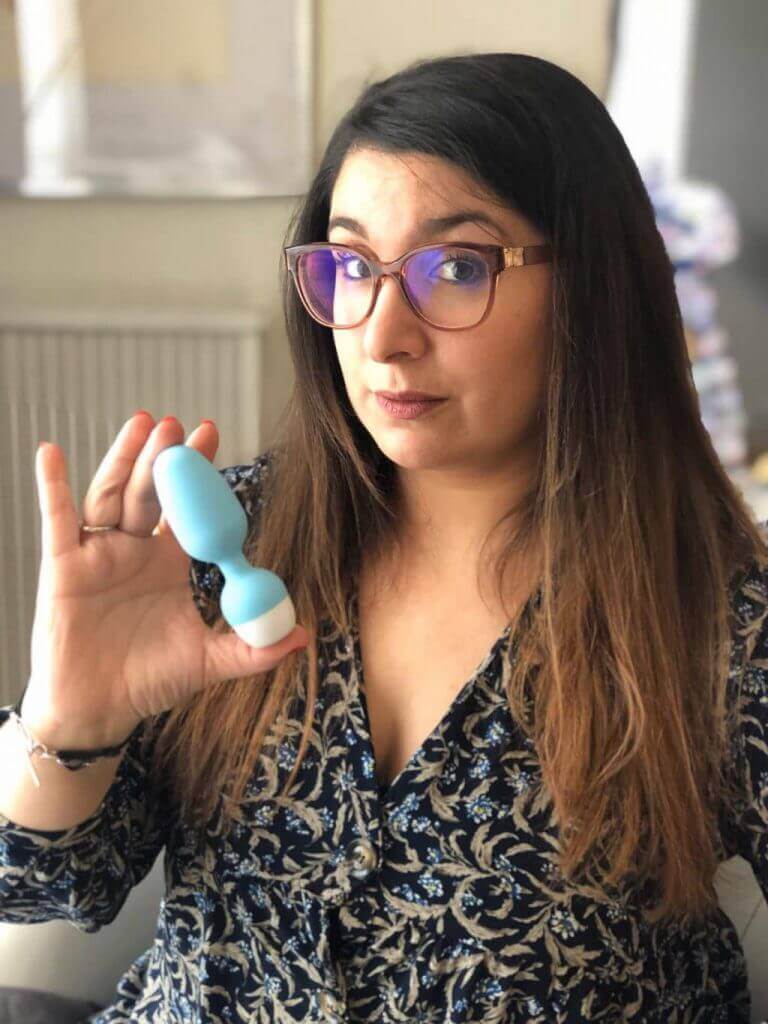
Which pelvic floor therapy device is right for me?
There are several methods to do your pelvic floor rehabilitation or training. It is entirely possible to strengthen your pelvic floor with or without a device or a trainer. If you choose to use a device or a kegel exercise trainer, you will have plenty of options: biofeedback trainers, electrostimulation devices, etc. Paul, physical therapist specialised in pelvic floor rehabilitation, will tell us about all the Pelvic Floor Physical therapy devices
The benefits of pelvic floor physical therapy devices
During rehabilitation sessions with a healthcare professional (physiotherapist or midwife), a vaginal examination will be performed to assess the muscles of your pelvic floor. The practitioner will then prescribe a suitable therapy device or a biofeedback based trainer adapted to your needs.

Why use a pelvic floor therapy device ?
There are different types of pelvic floor physical therapy devices, of various sizes and shapes: round, tube-shaped, elongated… They vary according to the type of rehabilitation needed.
To prescribe you the most appropriate pelvic floor rehabilitation device or trainer in the office, your practitioner will take into account several criteria such as:
- Vaginal anatomy ( tonicity, length and tightness)
- Medical History and pre- existing conditions ( like incontinence or prolapse)
- Degree of pelvic floor dysfunction or weakness

Which device to use for pelvic floor training?
Not all pelvic floor rehabilitation devices have the same purpose. It is likely that you will use multiple types of devices during your rehabilitation with your healthcare professional.
Electrostimulation devices
Electrostimulation devices are intravaginal devices. This type of devices relies on the principle of electrical stimulation. They deliver an electric current of variable intensity directly to the pelvic muscles to stimulate them.
In fact, rehabilitation through electrostimulation is considered “passive“. The patient does not get to decide when to contract. There is an electric current that induces a reflexive mechanical contraction of the pelvic floor. Therefore, electrostimulation devices do not aim to teach voluntary contraction.

This type of device is often prescribed at the beginning of rehabilitation for women who do not have a good knowledge of their pelvic floor. Additionally, this technique helps them become aware and better locate the pelvic area. It is also recommended for cases of very relaxed pelvic floors or dysfunctional pelvic floors.
Depending on the situation, rehabilitation can start with an electrostimulation device and then continue with a biofeedback trainer
Biofeedback devices or smart kegel trainers-
Unlike electrostimulation devices, biofeedback devices allow for “active” training. With this rehabilitation method, it is the user that voluntarily contracts her pelvic floor (does kegel exercises)
Biofeedback devices are also intravaginal. They simply act as sensors. The devices therefore does not emit any electrical current.
The purpose of a biofeedback device is to detect pelvic floor contractions when the user does a kegel and transmit this information in the form of a visual or auditory signal.

In most cases, a visual signal is sent to a screen showing the contraction and the instructions to be followed. Thanks to visual feedback, the user can verify if the pelvic floor contraction is done correctly . Biofeedback allows the user to have feedback on an action she has performed but cannot, in theory, see.
What type of patient can use a pelvic floor therapy device?
If you suffer from a pelvic condition or pain, using a pelvic rehabilitation devices may not be possible at the beginning of your rehabilitation.
For these particular cases, there are smaller devices models that may be suitable (such as finger devices for example).
Due to fear, modesty, or following a blockage, it may be unthinkable for some women to insert a device into their vagina. Other rehabilitation methods are suitable in these cases, such as manual pelvic rehabilitation or visualization.
In most other cases, the use of a pelvic rehabilitation device can be appropriate and prescribed. So do not hesitate to discuss this directly with your healthcare professional who can advise you.

If you wish to continue your pelvic floor rehabilitation at home, the choice of device or trainer is more flexible. Your practitioner can also guide you in purchasing a device so you can continue strengthening your pelvic floor in the long term. This will help maintain the benefits of pelvic floor rehabilitation sessions done in the clinic and prevent the onset of pelvic problems.

Free Pelvic floor guide
Find out how to strengthen your pelvic floor to prevent bladder weakness and improve intimate pleasure! 💥
The Emy smart kegel trainer
You may know Sabrina as the famous Pelvic floor princess. She is a physical therapist specialized in pelvic floor rehabilitation. She uses the Emy pelvic floor trainer in her clinic.
Sabrina also prescribes the connected Emy device to her patients so they can continue their muscle strengthening at home. Here is a brief excerpt from her testimony on the Emy pelvic floor physical therapy device.

Why work with the connected Emy device ?
As you probably know, pelvic floor training requires a holistic approach to the patient. We often talk about abdomino-pelvic rehabilitation which takes into account the entire abdominal box.
Biofeedback, which I use in my clinic, is one technique among many that allows for a well-conducted treatment. However, in the clinic, it requires special organization if we want to put everything in place to offer the best treatment to our patients.
Emy, a tested and validated medical device
I had the opportunity to try the connected pelvic floor therapy devices from the beginning, the Emy device immediately won me over. And beyond the product, it’s the whole team at Fizimed, this French start-up committed to women’s health, that seduced me!
In addition, the Fizimed team listens to pelvic floor rehabilitation professionals. They constantly evolve their product and application to align as closely as possible with our demands.

Therefore, I use the Emy smart kegel trainer with my patients because it allows complementing pelvic floor rehabilitation in the office. The Emy device adapts to the majority of vaginas because it is short and narrow, which allows for effective work at the vaginal entrance.
This device, whose effectiveness is clinically proven, helps combat stress urinary incontinence. Indeed, Emy is an interesting solution for patients suffering from it. It can be used in the long term as it is rechargeable.
It also adapts perfectly to women who want to prevent urinary leaks or pelvic organ prolapse.
The fun Emy app
I also recommend the Emy app because it allows you to schedule notifications to not forget your sessions. The app also offers different gaming environments (fun, medical, etc.) that help patients stay motivated when doing their exercises at home.
There are over thirty mini-games based on medical protocols. They allow you to work on different types of contractions for overall muscle strengthening of the pelvic floor.

One of the great advantages of this solution? The healthcare professional in charge of pelvic floor rehabilitation can create personalized exercise protocols for each woman according to her needs! This allows for a very targeted and even more effective home workout.
Even though you can discover the Emy app without the device, it is with it that you understand the subtlety of the exercises, and of course, that you can visually monitor the strength and execution of contractions through biofeedback.
Emy is a 100% validated device for your pelvic floor!


